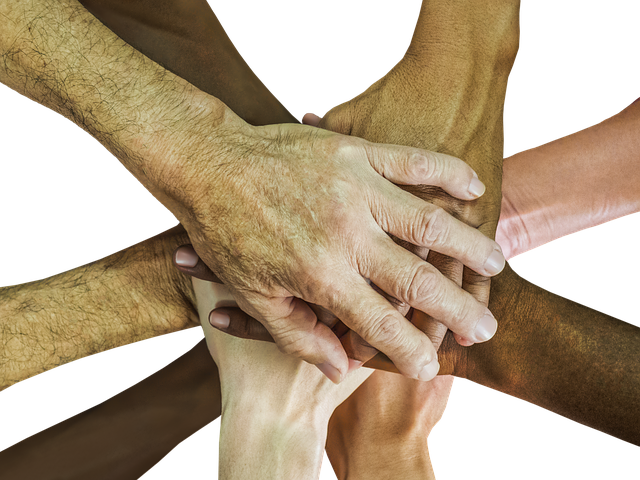Terror attacks, mass shootings and natural catastrophes fill the news on an almost daily basis. Whether we are directly impacted by these traumatic events or not, the awareness of them seems to have woken us up to the reality of trauma in our everyday lives: verbal, physical or sexual abuse, feeling unloved by family members, parental neglect, substance issues, mental illness, lack of necessities, divorce and other relationship strain. In a world full of uncertainty and turmoil, students need meaningful connections with caring adults more than ever. I believe in 2018, schools will continue and accelerate the trend of being proactive about creating a culture and climate where every student feels safe and valued.
According to the Collaborative for Academic, Social and Emotional Learning, social and emotional learning, or SEL, is “the process through which children and adults acquire and effectively apply the knowledge, attitudes and skills necessary to understand and manage emotions, set and achieve positive goals, feel and show empathy for others, establish and maintain positive relationships and make responsible decisions.” SEL encompasses a host of prevention efforts, such as those addressing the problems of bullying, violence, drugs, gangs, dropping-out and teen pregnancy. However, for those efforts to have maximum impact, there must be a solid instructional foundation that focuses on the whole child, making SEL a priority.
SEL helps us identify what is going on in our heads and in our hearts, so we can use our hands to build up and not tear down. Being intentional about SEL means establishing a common language across the school community and dedicating class time to have critical conversations with students centered around this language. Clearly defining words like respect, responsibility, courage, honesty and kindness ensures that students, teachers and parents have the same understanding of what we are working toward. This is not about rules and regulations; it’s about character formation — what makes us truly human. Using stories and meaningful activities, such as journaling, games and art projects related to the common language helps make the concepts more tangible for learners. These conversations and activities can occur during a morning meeting, advisory time or a dedicated class period. In addition, the learning must be integrated throughout the school day during transitions, related arts and core curriculum. The goal is to build positive and healthy relationships between students and caring adults.
In addition to having more intentionality around SEL, I see three more trends that will influence schools in 2018:
- Schools will improve social and emotional support for educators. Teachers can only give what they have. For them to focus on the social and emotional needs of their students, they too must have their social and emotional needs met.This includes having healthy and supportive relationships with administrators and staff, a nurturing place during breaks or planning periods and a workable plan for having the class covered when a crucial need arises.
- Schools will continue to become more trauma-informed. With increased focus on adverse childhood experiences, or ACEs, schools serve as an intervention and advocate for our most vulnerable students. Whether that means providing food, clothing, shelter or medical care, schools are part of a system of care. Additionally, when educators are aware of students’ backstories, they can attend to their most urgent needs while maintaining high expectations, which gives students hope for the future.
- Schools will make a commitment to restorative practices. To decrease disciplinary disparities and keep students in the classroom, schools are trying to implement restorative rather than punitive disciplinary strategies.There are many principals who tell me they have adopted a restorative approach but have been unwilling to invest the time necessary to create a culture of true restoration. They continue to use in-school and out-of-school suspensions, which demotivates students from learning and improving. For a restorative approach to be effective, there must be a solid foundation of intentional SEL, including a common language across the school community.
For years, educators have looked for what is going to solve the problems we have with students, teachers and neighborhoods. The answer is simple, but not always easy: relationships. When leadership — which includes administrators as well as influential teachers — commits to SEL in a widespread fashion, then the school can be transformed from an institution of education to a community of caring: a place that feels like family. And family is not about perfection; it’s about belonging and growth.
Tamara Fyke (@entrprenurgirl) is a creative entrepreneur with a passion for kids, families and urban communities, and is the creator, author and brand manager for Love In A Big World with Abingdon Press. In her early days, Tamara worked as a substitute teacher in Metro Nashville Public Schools. She transitioned to leading community programs as well as in-school support services, program development and research. Tamara received her master’s degree in education from Vanderbilt University’s Peabody College of Education and Human Development and worked at Vanderbilt’s Center for Safe & Supportive Schools, providing professional development, coaching and consulting for principals and teachers in issues related to safety and climate. Learn more about Tamara’s work at www.loveinabigworld.com.
____________________________________
Like this article? Sign up for ASCD SmartBrief to get news like this in your inbox, or check out all of SmartBrief’s education newsletters, covering career and technical education, educational leadership, math education and more.
